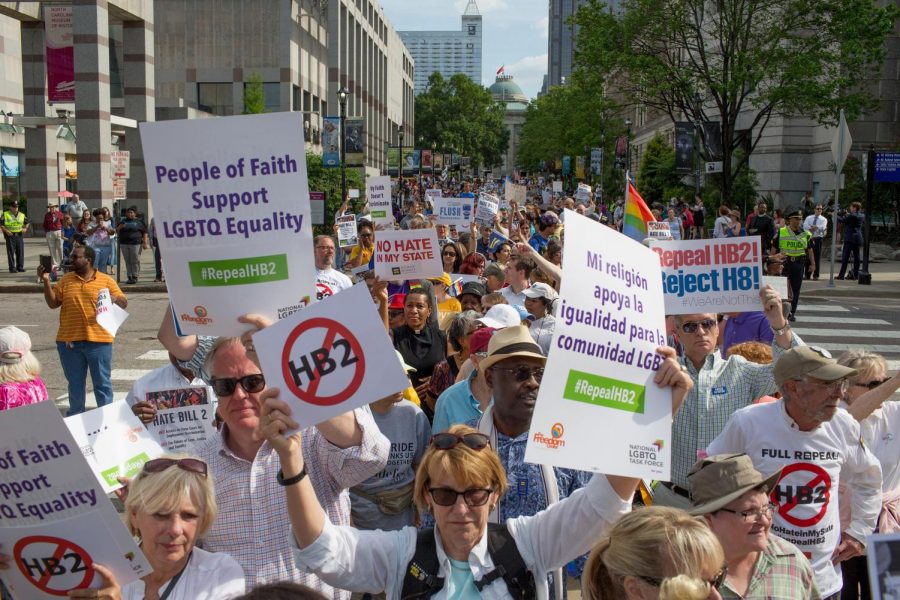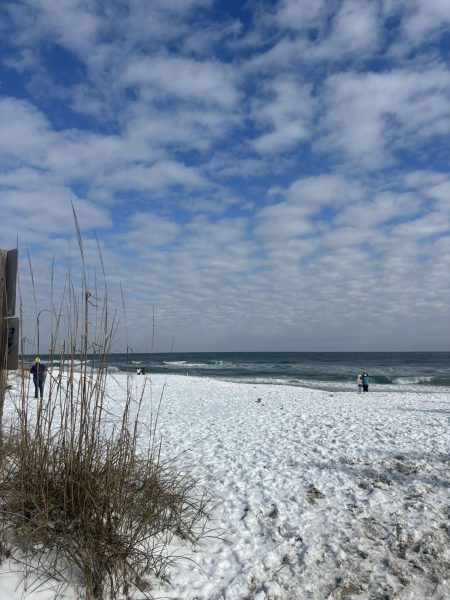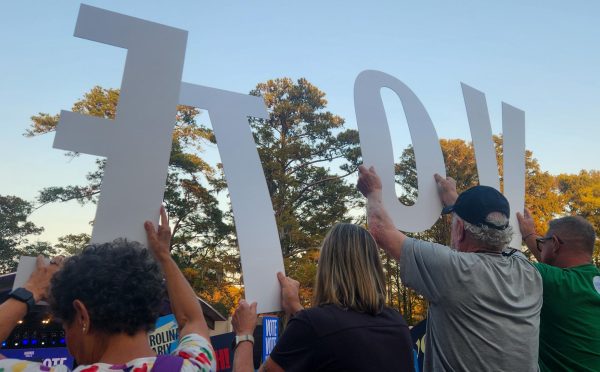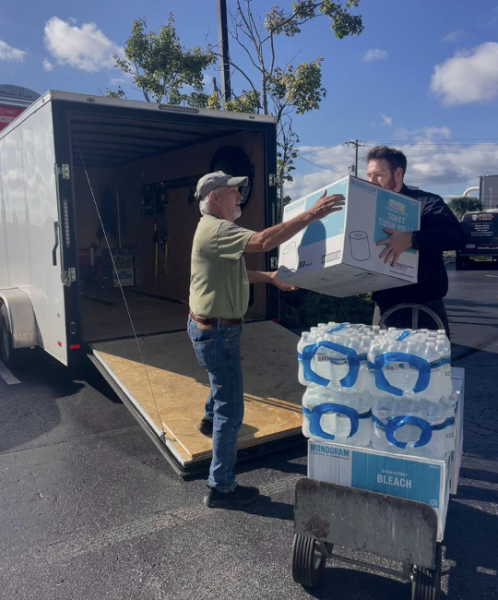Gov. Cooper’s ongoing battle with HB2 culminates in a settlement
Jill Knight/Raleigh News & Observer/TNS
Demonstrators call for the repeal of HB2 in Raleigh, N.C., on April 25, 2016. (Jill Knight/Raleigh News & Observer/TNS)
On Oct. 18, Governor Roy Cooper announced a settlement of a federal lawsuit against House Bill 2, the controversial “bathroom bill” passed in North Carolina in March 2016.
As a part of said deal, Gov. Cooper agreed to declare that “transgender people are not prevented from the use of public facilities in accordance with their gender identity.”
Despite repealing House Bill 2 (HB2) in March, Cooper has been embattled with some members of North Carolina’s GOP in an effort to protect the rights of the state’s LGBT community.
According to a report from the New York Times, Cooper said in March that the repeal legislation “cannot be the only step… They set the fire, and I’m working to put it out.”
The settlement that was announced by Cooper was referred to as a consent decree in a press release by the governor’s office. The decree was submitted with the plaintiffs to the U.S. District Court in Greensboro. If approved by a federal judge, it would resolve the lawsuit that challenged provisions in HB2.
Cooper also signed an executive order on the same day, No. 24. The order bans discrimination based on race, color, ethnicity, national origin, age, disability, sex, pregnancy, religion, National Guard or veteran status, sexual orientation, gender identity or gender expression.
The order directs the Department of Administration to develop guidance that will require certain companies that have contracts with the state to implement similar non-discrimination policies. North Carolina executive agencies contract with more than 3,000 vendors who employ thousands of people, and this executive order could impact up to $1.5 billion worth of contracts, according to a press release from the Governor’s office.
“By requiring companies that contract with the state to have non-discrimination policies, the state can promote protections for more North Carolinians outside of state government,” Cooper said. “We’ve worked with the business community, advocates for the LGBT community and other North Carolinians who know our state is stronger because of our diversity, and I will keep working to make our state a welcoming and inclusive place.”
HB2, or the “Public Facilities Privacy & Security Act,” is officially known by a much longer name, “An Act to Provide for Single-sex Multiple Occupancy Bathroom and Changing Facilities in Schools and Public Agencies and to Create Statewide Consistency in Regulation of Employment and Public Accommodations.”
When signed into law in March 2016 by then-Governor Pat McCrory, HB2 sparked controversy and debate across the nation.
The bill was first passed primarily in response to Charlotte City Ordinance 7056, and was a non-discrimination ordinance prohibiting discrimination on the basis of sexual orientation or gender identity in public accommodations, by passenger vehicles for hire or by city contractors.
Charlotte’s ordinance was eventually repealed in December 2016.
As a result of HB2, some states spoke out against North Carolina, issuing publicly funded travel bans to the state, while sports tournaments and businesses began to pull out of the state as well.
Economic losses as a result of HB2 are estimated to amount to $3.76 billion over 12 years, according to the Associated Press.
Notable musicians also cancelled performances throughout the state following the passage of HB2. Some include Ringo Starr, Demi Lovato, Nick Jonas, Maroon 5 and Bruce Springsteen. The Greensboro Coliseum Complex estimated that it lost $100,000 from the cancellation of Springsteen’s concert.
On the political front, President Donald Trump originally came out against HB2 in April 2016. In June 2016, however, Trump changed his stance on the issue and supported the bill. In April 2017, the Trump Administration dropped a lawsuit against the controversial bathroom bill.
According to a report from Reuters, the Justice Department said it had dropped its lawsuit – filed last year by the Obama administration – because the North Carolina legislature had replaced it with a new law called House Bill 142.
North Carolina’s LGBT population is estimated to be well over 350,000, or 3.5 percent of the state’s 10.15 million people, according to a Gallup report.
Governor Cooper’s press release also echoed the recent judicial and legislative developments over the past year.
“For too many reasons, it is not in our state’s best interest to remain in drawn-out court battles that still linger because of HB2,” said Cooper. “As a state, we need to work together to make North Carolina more welcoming, and I am pleased that we could come together with the other party in this case to show that we agree.”
The link to the Governor’s Executive Order can be found here:












